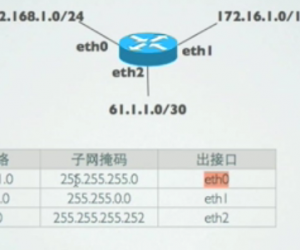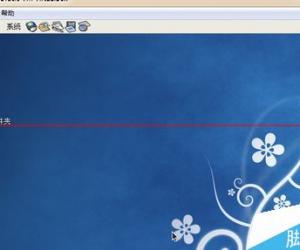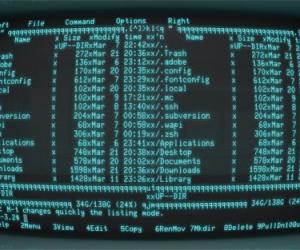一些有趣的Linux命令
发布时间:2014-09-05 14:33:44作者:知识屋
一些有趣的Linux命令
1.cal 9 1752
[plain]
1752
1 2 14 15 16
17 18 19 20 21 22 23
24 25 26 27 28 29 30
1582年2月,罗马教廷需要从1582 年10月中减去10天,因此1852年10月4日后面紧跟着就是15日。在意大利、西班牙等国家都这样处理了。其他天主教国家也很快跟着这么做了,但是新教国家不愿意修改,而且希腊等东正教国家直到20世纪初才修改,所以这个改革在英国及其殖民地(包括美国)在1752年9月才被执行。这样1752 年9月2日后面跟着的就是1752年9月14日。这就是为什么cal会生成上面输出的原因了。
2.aptitude -v moo
[plain]
<strong>$ aptitude -v moo
</strong>There really are no Easter Eggs in this program.
<strong>$ aptitude -vv moo
</strong>Didn't I already tell you that there are no Easter Eggs in this program?
<strong>$ aptitude -vvv moo
</strong>Stop it!
<strong>$ aptitude -vvvv moo
</strong>Okay, okay, if I give you an Easter Egg, will you go away?
<strong>$ aptitude -vvvvv moo
</strong>All right, you win.
/----/
-------/ /
/ /
/ |
-----------------/ --------/
----------------------------------------------
<strong>$ aptitude -vvvvvv moo
</strong>
What is it? It's an elephant being eaten by a snake, of course.
3.apt-get moo
[plain]
(__)
(oo)
/------//
/ | ||
* //---//
~~ ~~
...."Have you mooed today?"...
4.cowsay what the
在执行这一条命令之前,首先要安装cowsay,可以执行sudo apt-get install cowsay去安装。
[plain]
__________
lt; what the >
----------
/ ^__^
/ (oo)/_______
(__)/ )///
||----w |
|| ||
5.telnet towel.blinkenlights.nl
这是什么?星球大战?没错,就是电影星球大战了,有兴趣一起看么?哈哈。
如果没有装telnet的话,你可以先用apt-get instal telnet安装一下,然后输入上面的命令,就可以好好欣赏这么一部好电影啦。
6.fortune
如果没有这命令,可以先用apt-get install fortune安装一个。
缺乏动力了?每天一句名言来警示一下自己吧。哈哈。
[plain]
example 1: Don't you wish you had more energy... or less ambition?
example 2: Delores breezed along the surface of her life like a flat stone forever
skipping along smooth water, rippling reality sporadically but oblivious
to it consistently, until she finally lost momentum, sank, and due to an
overdose of flouride as a child which caused her to suffer from chronic
apathy, doomed herself to lie forever on the floor of her life as useless
as an appendix and as lonely as a five-hundred pound barbell in a
steroid-free fitness center.
-- Winning sentence, 1990 Bulwer-Lytton bad fiction contest.
example 3:The ripest fruit falls first.
-- William Shakespeare, "Richard II"
(免责声明:文章内容如涉及作品内容、版权和其它问题,请及时与我们联系,我们将在第一时间删除内容,文章内容仅供参考)
相关知识
-

linux一键安装web环境全攻略 在linux系统中怎么一键安装web环境方法
-

Linux网络基本网络配置方法介绍 如何配置Linux系统的网络方法
-
Linux下DNS服务器搭建详解 Linux下搭建DNS服务器和配置文件
-
对Linux进行详细的性能监控的方法 Linux 系统性能监控命令详解
-
linux系统root密码忘了怎么办 linux忘记root密码后找回密码的方法
-
Linux基本命令有哪些 Linux系统常用操作命令有哪些
-
Linux必学的网络操作命令 linux网络操作相关命令汇总
-

linux系统从入侵到提权的详细过程 linux入侵提权服务器方法技巧
-

linux系统怎么用命令切换用户登录 Linux切换用户的命令是什么
-
在linux中添加普通新用户登录 如何在Linux中添加一个新的用户
软件推荐
更多 >-
1
 专为国人订制!Linux Deepin新版发布
专为国人订制!Linux Deepin新版发布2012-07-10
-
2
CentOS 6.3安装(详细图解教程)
-
3
Linux怎么查看网卡驱动?Linux下查看网卡的驱动程序
-
4
centos修改主机名命令
-
5
Ubuntu或UbuntuKyKin14.04Unity桌面风格与Gnome桌面风格的切换
-
6
FEDORA 17中设置TIGERVNC远程访问
-
7
StartOS 5.0相关介绍,新型的Linux系统!
-
8
解决vSphere Client登录linux版vCenter失败
-
9
LINUX最新提权 Exploits Linux Kernel <= 2.6.37
-
10
nginx在网站中的7层转发功能
























